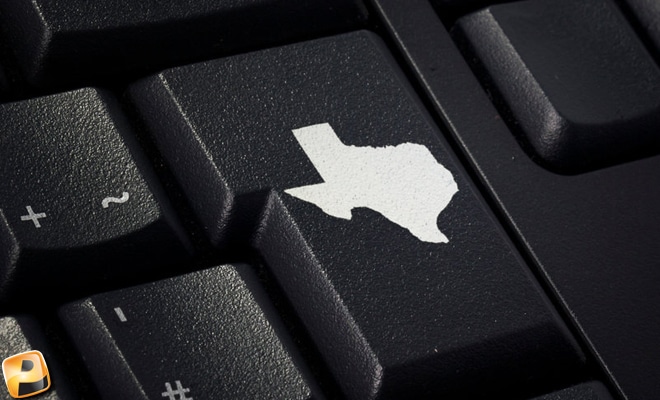Last Updated on March 23, 2018
Cindy Sheehan, the grieving mother-turned-political-activist, continues to camp outside President Bush’s ranch in Texas, demanding audience with the president.
“I want to ask the president, ‘Why did you kill my son?'” she has said.
I’d like to ask her why she possibly thinks anyone would meet with her when she’s making statements like that. There is such a thing as decorum and diplomacy. Grieving mother or not, she must know she would have gotten further in her efforts to meet with Bush had she not made such a statement. (I’m sure she does know that.)
I’m sure she also realizes that such incendiary soundbites also make for good press, which she is not only getting, but encouraging at every possible opportunity. As the San Francisco Chronicle put it so well, “…the image of an anguished 48-year-old mother standing outside the vacation home of the most powerful leader in the world, asking him to explain her son’s death, is compelling….”
According to an article from CNN, Sheehan arrived in Crawford aboard a bus painted red, white and blue and emblazoned with the words, “Impeachment Tour.”
That’s a sure way to get you a cordial meeting with the president!
But the Chronicle brings up another important point: her protest sets up a no-win situation for Bush. (I’m sure she knows that, too.) By granting her the audience she demands, Bush potentially angers the 1850 other families who have suffered losses in Iraq but who haven’t been as vocal about it. Wouldn’t they have the right to the same treatment? Giving her the attention she is demanding also strengthens her political clout.
By refusing to meet with her, as he has done so far, he appears heartless by not having the time (during his five-week vacation that she has been so quick to mention) to meet with a Gold Star mother.
Either way, he looks like the bad guy. Either way, she is a hero in the eyes of those who oppose the war or do not trust Bush. Lest you think that Sheehan isn’t aware of the potential notoriety, she received assistance from Bob Fertik of Democrats.com, in setting up the website MeetWithCindy.org, from which visitors can not only donate to help defray the costs to send others to Crawford to join the protest, but can even find quick links to email addresses for the major media outlets and the White House.
But as easy as it is, we shouldn’t let the protest itself make us lose sight of her son, 24-year-old Casey Sheehan, who was killed five days after he arrived in Sadr City, Iraq. He had joined the army in 2000, never imagining that he would see combat, according to the Associated Press.
What?
With growing concerns over global terrorism in 2000, with the “unfinished business” of Gulf War I, President George H. W. Bush’s son running for the White House, and the widespread conspiracy theories that had people convinced that Bush was just looking for an excuse to “finish the job,” how could anyone join the military without any expectation that war wasn’t a possibility? The possibility of war, even in a time of complete peace, would be the first thing on my mind.
Of course, it was on Cindy’s mind. She begged him not to go, she says. “I said, ‘I’ll take you to Canada’ … but he said, ‘Mom, I have to go. It’s my duty. My buddies are going.'”
She’d take him to Canada? Do I recall something about Purple Hearts and draft-dodgers from the last election? Sheehan supported Kerry in the last election. Did she applaud those reports about Bush’s lack of military experience while her candidate paraded veterans for all to see? Did she cheer when Democrats denounced the avoidance of military service, (after suffering amnesia and conveniently forgetting that position when Bill Clinton ran in 1992)? Avoiding military service doesn’t sound so bad when you have a personal stake in the outcome, do they?
I know what you’re thinking. That was before the war started. That was before 9/11. Cindy says her son joined the Army because he was promised that he could finish his college degree. (And had he not been killed overseas, he would have.)
But it is interesting to learn that after 9/11, and after the War in Iraq began, Casey re-enlisted in August of 2003 because “he didn’t want his buddies to do the job by themselves.” He wasn’t in Iraq then, of course, but the threat of being deployed was very real by then. Casey made the decision to stay on when he could have come home. Undoubtedly, he felt that the potential cost might not be too high.
Cindy says she never considered Iraq a threat to America, in an October interview at Buzzflash.com. Casey told his mom, “It’s my job.” Apparently, in the final letter that he didn’t have time to complete, he wrote that it looked like it was going to be an “easy year” of deployment.
Sheehan, in case you haven’t heard, did meet with Bush in June of 2004. She was among the grieving families who met with him at Fort Lewis in Washington. But since then, her feelings have shifted from shock to anger, in part because of “various reports that have disputed some of the Bush administration’s justifications of the war.”
But she did get to speak to him personally then. Her exchange, as she tells it, went like this:
“(Bush) called me ‘Mom’ because he didn’t know my name, and he didn’t know my son’s name — he just knows that he’s meeting with these families that have lost loved ones. He said, ‘Mom, I can’t imagine the pain you’re going through.’ I said, ‘I think you can imagine it a little bit, Mr. President. You have daughters. How would you feel if one of them was killed?'”
I told him, “Trust me, Mr. President –- you don’t want to go there.”
He said, “You’re right. I don’t.”
What more can she say now? What more will it accomplish now, other than forwarding her agenda?
She has every right to be angry and grieving. She has every right to demand answers, although I think she’ll never get the answers she needs in this life. She has every right to protest and speak out about what she believes, and I do applaud her for taking advantage of the right to protest that all of us have.
But when you step back and take a detached look at the situation, you come to the inescapable conclusion that a meeting with Bush would be pointless. I’m sure Sheehan is convinced that Bush believes he is right no matter what. If he met with her and admitted that the war is wrong like she wants him to, she would never accept his explanation as genuine, and even then, what would it accomplish? Her son would still be lost. If he meets with her and tries to present evidence the rest of us haven’t seen, it would merely be, in her mind, more fabrication to justify his war. She doesn’t trust him, which means that she falls in line with roughly half the country, according to a recent poll. Are we to believe that she ever will?
As set in his ways, as convinced as he is that he is right, Sheehan is as convinced that she is right.
I am reminded of a quote by Jeff Jarrett, who, oddly enough was speaking of a different (and far more harmless) kind of “warfare,” professional wrestling. His quote is still quite applicable in this battle being waged in Texas when you consider how far apart both sides of this war are and how far apart both sides likely always will be:
“For those who don’t believe, no explanation will do; for those who do believe, no explanation is necessary.”
And so it continues.

















